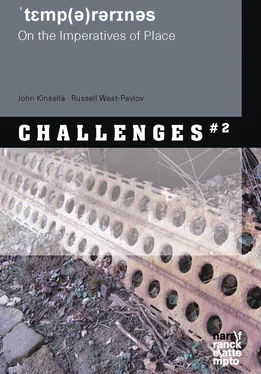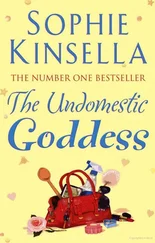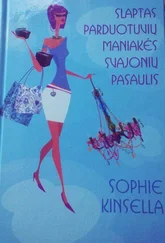In doing so, I consulted an old Penguin edition we have at Jam Tree Gully (one of four or five Donne collections here), and was surprised and pleased to find it was a copy Tracy had bought as a gift for me back in 1994 when we were ‘on the bones of our arses’.
I was still an alcoholic and addict then, and we were hugely in debt due to the chaos of my life. Tracy had found this copy in a university second-hand bookshop, and it’s a minor miracle we still have it—I tended to sell or hock everything back then to get the next bottle of sherry or whatever. The contradictions with my politics played a major part in my being eventually able to stop, and move on.
Anyway, this edition is annotated in my scrawling hand in patches here and there. I find myself reading marginal comments around the poem ‘The Harbinger to the Progress’ (‘The Second Anniversary’) or ‘Of the Progress of the Soul’. Here are the comments: ‘May Yagan colonise the soul—‘thief, murderer’ [as called by the ‘Settlers’ of the Swan River Colony], [is actually] honourer and representative of HIS PEOPLE. This comment probably connects to ‘(a third)’ which I have encircled in the first line of the Donne poem:
Two souls move here, and mine (a third) must move
Paces of admiration and of love;
On the next page I have written: ‘I never liked Dante’s Paradise—maybe I am a victim of what I assume of others’. This hermeticism is followed by the comment: ‘Oh, the repraise. The dynamics of—of—Natural Born Killers.’ This comment is next to the final couplet of the poem:
Those acts, those songs shall still content them best
Which praise those awful powers that make them blessed.
Which brings me to my theme and the tangential interconnectedness of things. The permanence of the Donne text and the temporariness of my hand-written comments in a volume breaking at the spine, a residue of terrible days (for us), with the pages even stained and bearing a strand of rollie tobacco twenty-three years later (I haven’t smoked for twenty-two years), the linking of a pure afterlife (and getting there, one might add, ‘lightning moves but slow’), ironically to the adulterated (and, of course, ‘passionate’) materiality of the here and now, to highlight the tactile pleasures of living life, of letting death be death, is the engine in many ways behind the very Western subjectivity. A state-sanctioned subjectivity that has led to such materialistic greed, to such a ‘selfie’ socialising of the self—policing of the individual by socially connected individuals (who have long since consigned individuality to digital groupthink).
The ironies of Donne cascade through the centuries to become the greed of a science not of knowledge but of self-gain (often camouflaged in a patriotic/nationalistic false collectivity). The reference to Oliver Stone’s exploitative movie (of violent imagery to stimulate viewers as they witness manifestations of the anti-social, whatever role the corporate state has had in creating the conditions for such an extremely violent ‘response’) Natural Born Killers , which Tracy and I had seen at the cinema at the time, is more than a pop-cultural reference of degradation and (violent) breakdown of modern Western (consumer American) subjectivity; it is a parallel to the prosodic devices being deployed in Donne’s personal conquest of the soul.
This harbinger brings me back to the government and Main Roads and private companies extending their destructions into the realm of the soul, into a model of well-being of progress to tame a world to one end and one end only: praise of a God who gives and takes and who expects us to use ‘his’ world to his ends, which are an extension of their right-wing politics.
The religious right is strongly present in Australia as much as America (even if this is denied) and strongly indicated through racism and bigotry; but more than that, there’s a colonially inherited God-model of nation that, even if Godless for some now, is about forces outside the quotidian directing and determining what is right.
If you doubt this, check the demographics of right-wing parties in Australia, and their connections to and origins in mergings of individual, God and state.
As the NSW school curriculum (HSC) switches back to a world of imperialism by concentrating on texts through which its implementers might hope the crimes of the contemporary are reduced to allegory and tangential metaphorical allusion, we find ‘The Bard’, whose universal meanings (no denying those) are read by conservatives for gesture rather than the complexity of historical/linguistic context (try instead, as a counter-example and for a more nuanced approach, reading John Kerrigan on Shakespeare)—in other words, deeply political texts are sold as vaguely human and universal (they actually were pinpointed)...
We also find Jane Austen. Her privilege was backgrounded by slavery (despite her implicit objections to slavery in Mansfield Park and Emma, her family’s wealth and social privilege were deeply implicated in the profits from slavery—see ‘Austen and Antigua’ ( Considering Jane Austen 2018) for a rudimentary, somewhat unwittingly empire-centric, and wishful outline of the issues: it is important to note that many existing slaves weren’t emancipated until 1834!). She created texts that critique women’s economic dependence on social and economic structures that thrive through enslaving women within the society and an empire that grew through slavery elsewhere (that strand of tobacco? sugar plantations...). This is a Jane Austen who nonetheless uses irony in doses absorbable by a (very) slowly changing middle (and upper) class, creating entertainments that again universalise messages about the oppression of women and also the sass, wit and genius of individual women... Entertainments that can be now used to reflect themes that are political-lite, but not offensive to the conservatives of now...
And finally, Charles Dickens, whose undoings of British oppressions of the poor are far enough removed from the now to allow analogy that is toothless (the poor of other social orbits are distanced more and more... The corrections that a Dickens brings to British oppressions serves the purveyors of progress with a white neo-liberal royalist Westminsterism) in terms of the horrors of now.
Among these champions of British letters (sold as ‘English’ literature): very little of colonialism as evil, very little of environmental destruction, very little of the rights of different spiritual approaches to life (in essence), and very little about governments’ ability to destroy all life on the planet. Which brings us back to the trees lost on Great Eastern Highway and the stretched resources of protest and the military metaphor of many fronts at once.
Going back to the Donne—Penguin English Poets edition (ed. A. J. Smith) —I find a quote in Tracy’s hand on the half-title. Her gift to me. These lines from ‘A Valediction: Forbidding Mourning’:
Our two souls therefore, which are one,
Though I must go, endure not yet
A breach, but an expansion,
Like gold to aery thinness beat.
And I remember now, through the haze: it was a gift when I was taking myself away to Cocos, away from the scene I was feeding myself to, that was eating me... Away to find another way through, and a way back to Tracy (which is obviously what happened in the end!).
Donne’s metaphors of the tactile (of exploration and science and guild craft), so apt for the modern, also incorporate (I use this word carefully) the failure of the modern. Knowledge misused, knowledge extending the many empires of human ingenuity, their oppressions.
Even poetry written in (in some ways) radical exception to a crushing status quo (religious in Donne’s case—state oppression of Catholics), ends up feeding the apparatus of the state once it manages to meet the ‘needs’ of the consumer through creating a verisimilitude of paradise on earth. A treeless paradise populated with humans and electronic devices.
Читать дальше












